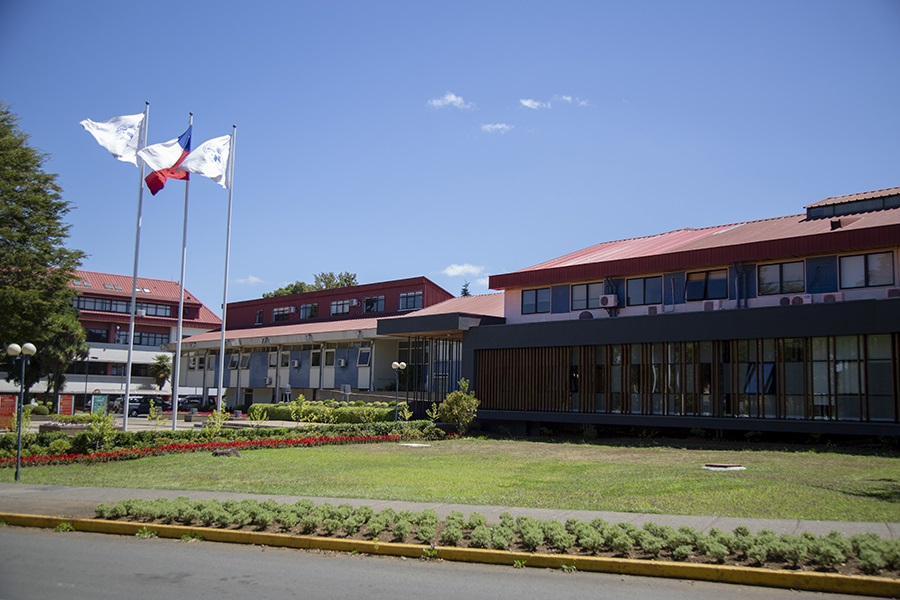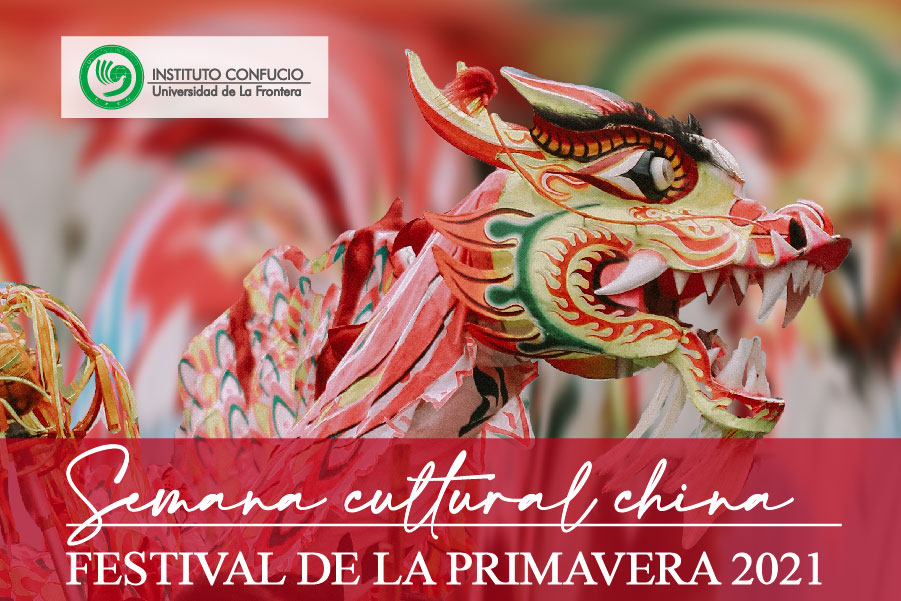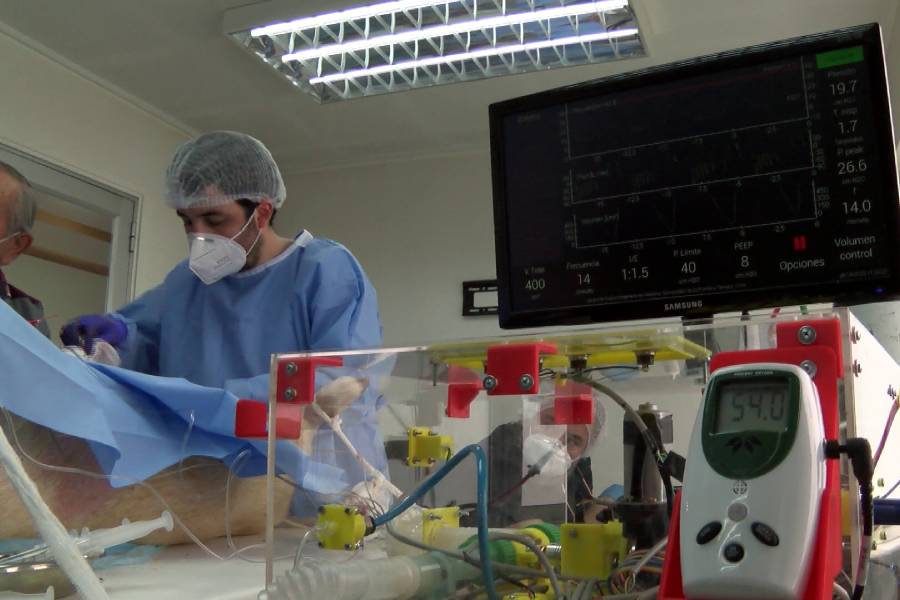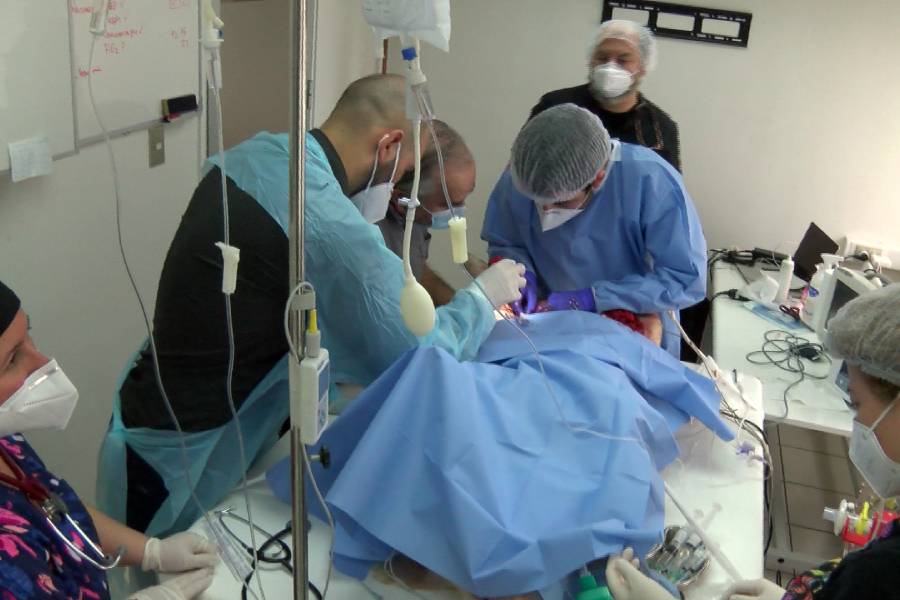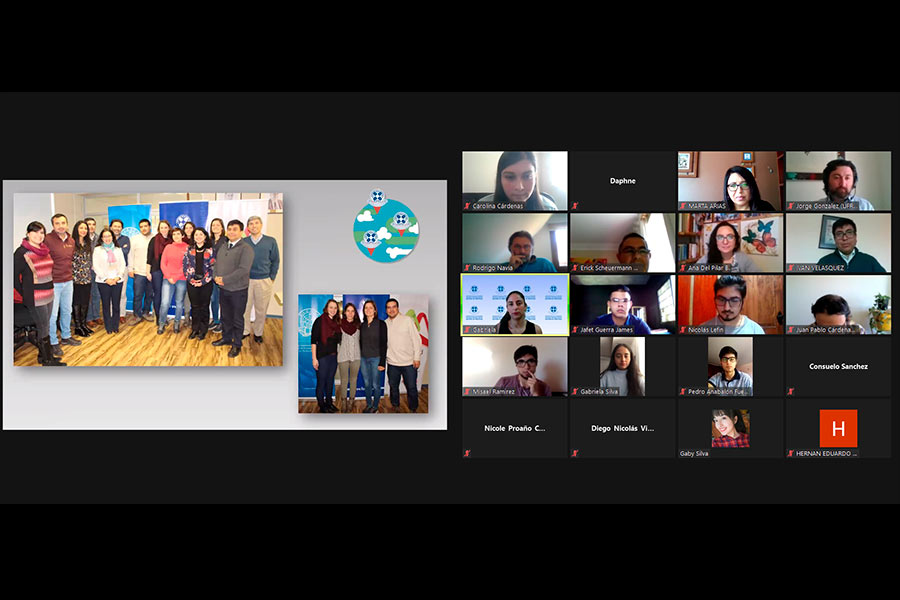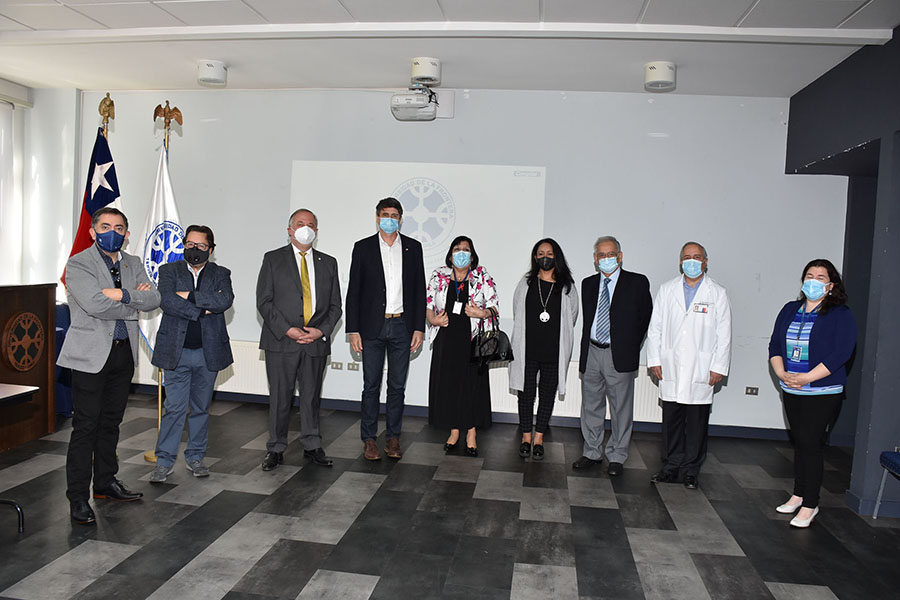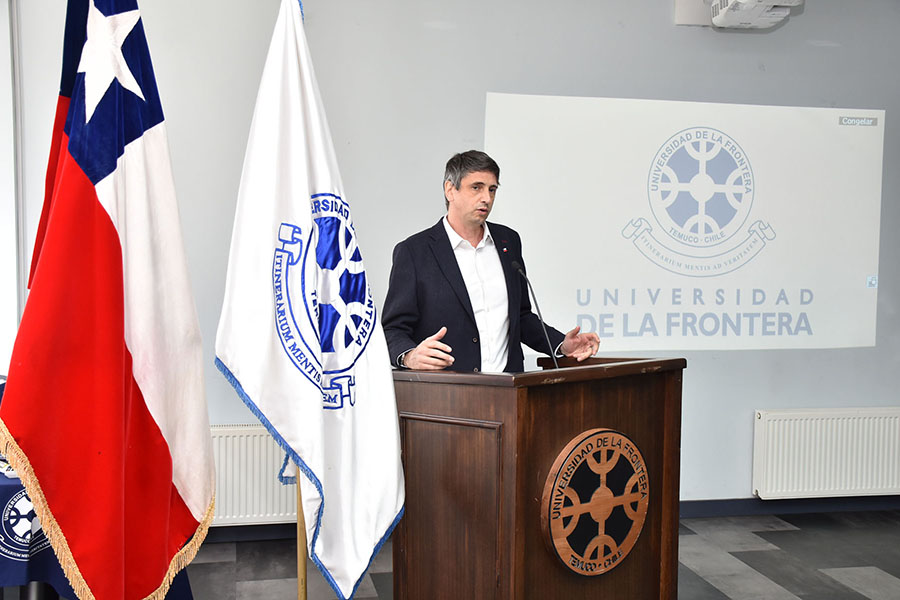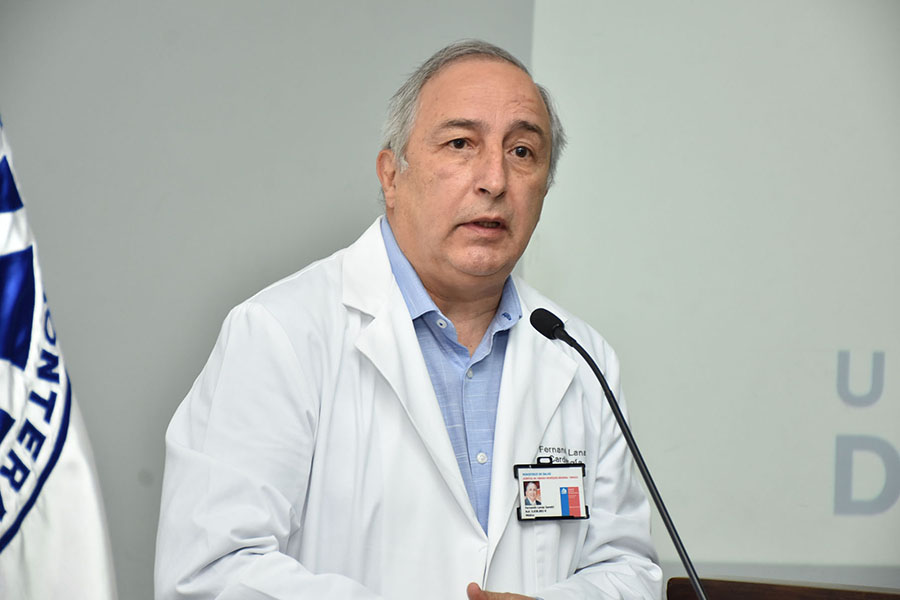|
The number of Regular Fondecyt (Chilean National Fund for Scientific and Technological Development) projects awarded to researchers from UFRO increased by 50% this year, while the number of Postdoctoral Fondecyt projects awarded is the same as last year, with 17 projects. |
The year 2021 has just begun and the university Universidad de La Frontera (UFRO) has already achieved a new record: the highest number of Regular FONDECYT projects awarded, with 20 projects. In addition to that, 17 Postdoctoral Fondecyt projects were awarded. That’s a total of 37 projects. The Vice Rector for Research and Graduate Studies, Dr. César Arriagada Escamilla, is very proud of that. According to him, this great result is partly the product of the implementation of new policies and mechanisms. “This is an historical achievement that reflects the high level and commitment of our researchers, as well as the improvement and incentive mechanisms that we have implemented through the Research Office of our university,” he explained. He also added that “this increase in the number of Regular Fondecyt projects awarded to our researchers at the very beginning of this year allows the university to look to the future with optimism”. Another remarkable fact is that the projects awarded cover a wide range of fields of knowledge, such as Agronomy, Earth Sciences, Geography and Urban Planning, Biology, Engineering, Education, Sociology, Philosophy, Anthropology and Archeology, Medicine, Clinical Sciences and Health Sciences. The Research Director, Dr. Pamela Serón Silva, also points out that “this year, it is remarkable that more than 50% of the projects awarded are from female researchers. That shows that the paradigms are changing, what allows us to keep strengthening the role of women in science by promoting their contribution to the creation of knowledge with a national and international impact”. REGULAR FONDECYT WINNERS Paula Aguilera Ñonquepan, Adison Altamirano Navarrete, César Arriagada Escamilla, Leticia Barrientos Diaz, Priscilla Brebi Mieville, Mariela Bustamante López, Jaime Cárcamo Oyarzun, Pablo Cornejo Rivas, Mabel Delgado Torres, María Cristina Diez Jerez, Juan Hinostroza Scheel, Patricio Lepe-Carrion, Viviana Letelier González, Cecilia Mayorga Muñoz, Patricio Mena Malet, Marjorie Reyes Diaz, Sonia Salvo Garrido, Alex Seguel Fuentealba, Orlando Vallejos Romero, and Mauricio Zambrano-Bigiarini. POSTDOCTORAL FONDECYT WINNERS Researcher in charge: Tamara Viscarra Álvarez; Sponsoring researcher: Carmen Gloria Ili Gangas
Written by: Karimme Riadi Millas
|
|
As part of the Chinese Spring Festival 2021, an event held in China and Chinese communities around the world, the Confucius Institute of Universidad de La Frontera is celebrating the ‘Chinese Cultural Week’ with a series of interesting activities to disseminate the Chinese culture in the La Araucanía Region and Chile. |
This week, the Universidad de La Frontera (UFRO) is celebrating the ‘Chinese Cultural Week: Spring Festival 2021’, an initiative of the Confucius Institute at the university. The aim of this event is to bring this festival, which is very important in the Chinese culture, and its meaning closer to the people in the south of Chile, through a variety of activities that the whole family can enjoy. According to Dr. Paola Olave Müller, the director of the Confucius Institute at UFRO, “the aim of this cultural week is to show the community in the La Araucanía Region more of the Chinese culture and to invite them to get to know and enjoy this celebration, which is the most important one in the Chinese calendar, and which we will celebrate with a series of very interesting cultural activities”. The festival started with an inauguration ceremony, in which a representative of the embassy of the People's Republic of China in Chile explained the meaning and scope of this celebration, as well as how people in China usually celebrate the Chinese New Year, which is on February 12 this year. AN INTERESTING PROGRAM FOR THE WHOLE FAMILY The festival started on Monday and ends this Friday. It’s a whole week of very interesting activities, such as theoretical classes with Nicolas Escaffi, an outstanding doctor of the Tianjin University of Traditional Chinese Medicine, who will not only make an introduction to traditional Chinese medicine, but also share his knowledge about names and associated proverbs, and give health tips, for example for your spine, with different exercises that will keep you healthy throughout life. The whole community can participate in these activities with a short previous registration, which is free for everyone, who is interested. Other activities of the program are different talks; the photo exhibition ‘The Forbidden City’ by the famous Chinese photographer and artist Li Shaobai; a paper-cutting workshop held by the outstanding teacher Jiaming Bai, who, via Zoom, will also explain the meanings and/or details to be considered in each piece; different Chinese movies, which will be broadcasted on the YouTube Channel of the Confucius Institute at UFRO (https://cutt.ly/Wjk5VZI); and many more. CONTEST TO WELCOME THE CHINESE LUNAR NEW YEAR In order to actively include the community, the Confucius Institute at Universidad de La Frontera invited everyone interested to participate in a contest, by sending a 20-second audiovisual greeting in Chinese, in order to welcome the Year of the Ox. On Friday 29, the last day of the festival, a compilation of the six best greetings will be streamed on the university’s online platforms and the winners will receive a little price. It is worth mentioning that the festival will conclude with a recital of two poems of the Chinese poet Shen Haobo, an activity that will include a performance by the outstanding Chilean actor and director Héctor Noguera. You can find the complete program of the festival here Written by: UFRO Communications Office
|
|
Since late March, a multidisciplinary team of physicians and engineers of UFRO has been working on the development of a mechanical ventilator, as a support in case of a possible lack of this kind of medical devices, due to the pandemic caused by COVID-19. |
This prototype of a mechanical ventilator has been developed by a team of experts from the Composite Materials Laboratory, which is directed by Dr. Renato Hunter, and the Center of Medical Physics and Engineering (CFIM), directed by Dr. Rodolfo Figueroa, of the university Universidad de La Frontera (UFRO), where also the experimental protocol was carried out, which is a crucial stage in the development process. The aim of this initiative is to support health professionals during this worldwide health crisis caused by COVID-19. The activity was chaired by Dr. Renato Hunter, the Vice-Rector for Academic Affairs, who pointed out that the development of this high-performance mechanical ventilator, which is very similar to the ones being used today in intensive care units, is a major milestone, since it will allow those establishments that do not have this kind of device, yet, to purchase it, because of its low cost. “There is no doubt about the impact of this achievement on the regional community. It will allow us to provide the health care service with this kind of equipment and if we manage to successfully complete the different procedures for the approbation of this mechanical ventilator, we will be able to provide it for the establishments that require it and to contribute to the current needs. This would allow us to avoid the lack of resources in our health care system, as we can experience it in our different care services at the regional level, and, therefore, help the community by contributing to the technological development of these devices with a national impact,” Dr. Hunter pointed out. During these months, the team, composed of doctors and engineers of UFRO, focused on developing a functional and efficient low-cost equipment with components that are available on the national market, and that complies with the international (WHO) and national (SOCHIMI) standards and requirements. One of the collaborators and advisors in this process was Dr. Waldo Merino, an academic of the UFRO Surgery, Traumatology and Anesthesiology Department, who made it possible to correctly pass the different validation tests. SUCCESSFUL PROTOCOL APPLICATION The application of the protocol was carried out and transmitted via streaming from the laboratories of the Universidad de La Frontera, a process that was declared successful in terms of the time and results expected by the team. The mechanical ventilator prototype uses a pneumatic solenoid valve that allows the medical gas (a mixture of medical air and O2) to flow to the patient, in addition to flow sensors in order to control the volume administered. The prototype can operate in four different ventilation modes, detecting the patient's inspiratory efforts in order to provide only the required volume. At the same time, this mechanical ventilator has a sophisticated electronic system and an alarm system that is connected to the monitor and provides the required information for a successful ventilation. It is worth mentioning that this achievement could be reached in collaboration with other local establishments. In this context, Mr. Waldo Merino commented that “we have great support for this project, in terms of infrastructure, human and physical resources, supplies and technological support, provided by the clinic ‘Clínica Alemana’ in Temuco. Another important support were our peers of the program in Veterinary Medicine from the university ‘Universidad Católica’ in Temuco (UCT), who have been able to join this project thanks to the constant support of Dr. Carlos Lüders, the Vice-Rector for Research at UCT. They were a great support, since without them we would not have been able to successfully complete the required tests in animal models”. Over the next few months, the team will continue with the improvement of the device’s functions, in order to reach perfection and to get the official certification by CERTIMED (a process carried out by the University of Valparaiso, Chile), which is required for all mechanical ventilators manufactured in Chile during this health crisis.
Written by: Vice-Rectorate for Academic Affairs, UFRO
|
|
The Faculty of Engineering and Science (FICA) of UFRO organized a relaxed virtual meeting with students who participated in the FICA IAESTE internship program 2020 for practical training abroad, in order to share their experiences. |
With the participation of authorities and academic staff members of the university Universidad de La Frontera (UFRO), employers, and representatives of the International Association for the Exchange of Students for Technical Experience (IAESTE), the students shared their international mobility experience in a meeting that had to take place online this time, because of the pandemic caused by COVID-19. The students who participated are José Guerra and Karolyne Díaz from Panama; Gabriela Silva and Nicole Proano from Ecuador; Diego Villagrán and Hernán Cid, two Computer Engineering students from UFRO; Pedro Anabalón and Nicolás Lefin, Chemical Engineering students from UFRO; and Misael Ramírez, who studies Civil Engineering in Computer Science at UFRO. “These foreign and national students make it possible for us to continue with the FICA IAESTE Program, which is an interesting program for internships and practical training abroad. It benefits everyone involved, because it allows us to receive a certain number of students from other parts of the world at our university and gives us the opportunity to send the same number of our students to other parts of the world for their internships,” Dr. Rodrigo Navia, the dean of the Faculty of Engineering and Science, pointed out. In response to the pandemic and in order to continue with the program, a new modality of virtual internships was introduced in May 2020. According to Carolina Cárdenas, the person in charge of IAESTE Chile, “the different countries that are members of IAESTE believe that this modality is a great opportunity for international cooperation from home. Thanks to this modification, UFRO students became the opportunity to carry out international internships with employers from different countries, such as the Czech Republic, Colombia, Brazil and India. However, we hope that it will be possible for our students to carry out their internships on-site again this year”. FICA IAESTE has also been able to offer different virtual internships for foreign students, through academics of the Universidad de La Frontera, during 2020. IMPRESSIONS Gabriela Silva, an Architecture student at the ‘University of San Francisco’ in Quito, Ecuador, describes her virtual internship experience with Dr. Juan Pablo Cardenas of the UFRO Department of Civil Engineering as positive. “There are subjects I did not have at my university and I feel that I have learned much more with Dr. Cardenas. You could probably say that the construction methods are a little more basic in my country, because we only have two seasons, winter and summer, while Chile has four seasons, what means that you have to work differently. Besides of the learning process, Dr. Cardenas has been quite supportive and also allowed me to participate in his classes.” Diego Villagrán, a Computer Engineering student at UFRO, is a real fan of the FICA IAESTE Program. “Thanks to this program, I had the opportunity to carry out two internships abroad. The first one was in Brazil in 2019 and the second one in the Czech Republic, which started in February of 2020 and had to take place under the virtual modality because of the pandemic. I am still working with them in this modality and I am very satisfied. You can learn a lot, as long as you know how to make the most of it,” he explained. This way, the Universidad de La Frontera, through its Faculty of Engineering and Science and the Student Mobility Office, has been able to continue with the coordination of internships abroad for its students during a very complex year 2020, thanks to an alliance established with the International Association for the Exchange of Students for Technical Experience (IAESTE) in 2017, a cooperation initiative, which at UFRO is coordinated by Gabriela Reyes. Written by: Daphne Bormann |
Minister of Science visited UFRO and stressed the leadership in clinical trials for Covid-19 vaccine
|
The Minister Andrés Couve met with the university authorities and researchers who are leading the clinical trial for CanSino Biologics’ Covid-19 vaccine. |
“This clinical trial for a vaccine is one more example that it is possible to work on scientific discoveries for Chile and the world on the regional level in a rather centralized country such as Chile,” Andrés Couve, the Chilean Minister of Science, Technology, Knowledge and Innovation, pointed out during his visit at the university Universidad de La Frontera (UFRO), which is the only institution in phase III of the clinical trial for CanSino Biologics’ Covid-19 vaccine. The purpose of this meeting was to get to know the details of this clinical trial. Therefore, the Minister Andrés Couve met with authorities of UFRO and the regional government, with the academic staff that coordinates the study and with volunteers who have decided to be part of it. Some of the attendees were the Rector, Dr. Eduardo Hebel; the regional Health Minister, Dr. Gloria Rodríguez; the Vice-rector of Research and Graduate Studies, Dr. César Arriagada; the Dean of the Faculty of Medicine, Dr. Wilfried Diener; the Research Director, Dr. Pamela Serón; and Dr. Fernando Lanas, the researcher who is leading this study together with Dr. Sergio Muñoz, both of UFROs Faculty of Medicine. According to Dr. Eduardo Hebel, because of the impact of this pandemic, the whole world is watching and waiting for the results of these clinical trials for a vaccine that will help to protect the world population. In this context, he stressed that “we are very proud that our university in the south of Chile has been chosen to lead this study, which can benefit people in the whole world. This certainly is a recognition of our scientific work”. In this context, the Minister pointed out that “the regional institutions offer different opportunities and we have to combine all advantages in order to create the best service for our country, and we believe that regional research should be developed with this in mind”. He also explained that after the approval by the regulatory authorities, “these vaccines will meet the highest safety and efficacy criteria, so that the people do not have to worry. We need to be vaccinated as a society. Immunization is not an individual issue, we all have to play our part in the fight against this virus and to protect each other”. Dr. Fernando Lanas also stressed the fact that Chile is part of these major global studies and that a Chilean regional university is coordinating one of them. “This is a tremendous contribution in terms of our research capabilities and our scientific output. This is the only study led by a regional university, and a challenge and source of pride for us,” he said. The researcher explained that this vaccine uses an adenovirus that cannot replicate and that carries the coronavirus protein on its surface. The results of phase I and II have already been published and show that it is a safe vaccine, with a good immune response, and now it’s time for the international clinical trials, with more than 40 thousand participants from China, Canada, Russia, Mexico, Argentina and Chile. Chile started the process, which will take about a month a half, with 5200 volunteers from different cities like Santiago, Talcahuano, Valdivia, Osorno, Temuco and Puerto Montt. In Temuco, most of them are health professionals, with about 1400 doses being administered. One of them is Denissa Klagges, a speech therapist and epidemiologist, who explained that “my motivation for participating in this clinical trial is that I work at a clinic, where I deal with patients with Covid-19 sequels, who are having difficulties to speak, communicate and swallow”. Written by: Karimme Riadi Millas
Vice-rectorate for Research and Graduate Studies |





